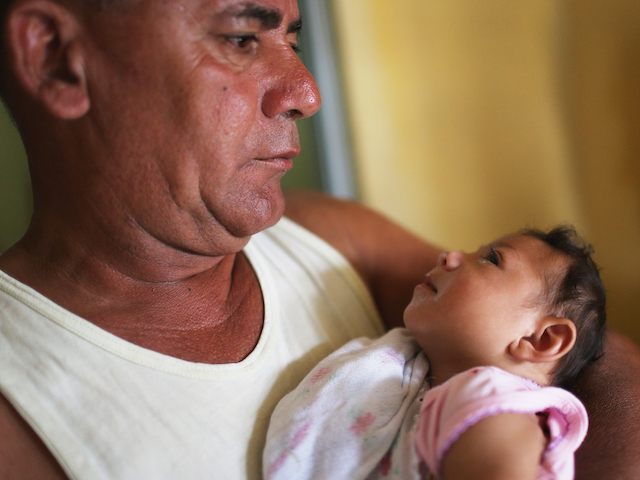Experts and the World Health Organization is warning that the Zika virus, native to Africa but spreading rapidly in Latin America, has “explosive pandemic potential” and may ultimately affect up to four million people, significantly eclipsing the number of cases in the 2014-2016 West Africa Ebola outbreak.
“The level of alarm is extremely high, as is the level of uncertainty. Questions abound,” the head of the World Health Organization (WHO), said in a briefing Wednesday. “We need to get some answers quickly.” She noted that the greatest danger for its spread is that humans contract the virus through mosquito bites. “The mosquito is ubiquitous,” she warned, “You don’t need to travel to get the disease.”
Marcos Espinal, head of communicable diseases and health analysis for the WHO’s regional satellite, the Pan American Health Organization, told reporters, “we can expect 3 to 4 million cases of Zika virus disease.” Experts base their estimates on the populations that live in habitats favorable to the Aedes aegypti mosquito, which is known to spread Zika, Dengue fever, Chikungunya, and Yellow fever. The Washington Post notes that some models have estimated that up to 200 million people in the United States alone live in Aedes aegypti territory.
The WHO’s warnings follow the publication of a paper by medical experts Daniel R. Lucey and Lawrence O. Gostin, who argue the virus has “explosive pandemic potential” and, should the WHO and other international medical organizations respond to it as slowly as they did to the Ebola outbreak, millions of lives could be in danger. The doctors warn that, as early onset of Zika is often asymptomatic, the disease could be spreading far more rapidly than doctors can measure.
A cure for Zika could be as much as ten years away, experts contend, because the virus does minimal damage to healthy adults. “When Zika infection was seen as usually asymptomatic and self-limited, researchers had little incentive to develop reliable countermeasures,” Lucey and Gostin explain, noting that the urgency from the international community today is based on the increasingly established links between Zika and numerous “fetal complications,” most prominently microcephaly.
Microcephaly is a condition in which a child is born with a skull too small for his or her brain, resulting in significant mental damage. Many die shortly after birth, but others live with severe mental injury.
Brazil has been hardest hit by the wave of microcephaly cases. The number of cases of microcephaly linked to Zika virus have surpassed 4,000 in South America’s largest nation, with a diagnostic rate of 200 cases a week. In the Southern Hemisphere summer, officials are worrying that cities may be the hardest hit. The city of Recife, for example, is predicting that up to 100,000 people within its borders came into contact with the Zika virus “in the first semester of 2015.” Of those, it is unclear how many may have been affected.
Experts fear the number of cases of damaged infants will skyrocket, as more and more Zika diagnoses in pregnant women come in. Colombia has diagnosed 890 pregnant women with the virus, with little ability to predict whether the child will be healthy before it is born.
The United States, meanwhile, has confirmed 31 cases within the 50 states, though all have contracted the disease from affected areas in Latin America. Puerto Rico has diagnosed 19 cases.
“The only proven tools we have in hand is mosquito abatement and public health recommendations,” Dr. Peter Hotez, dean of the National School of Tropical Medicine at Baylor College of Medicine, tells ABC News. While WHO and other organizations will work on research to find a cure, governments should focus on eradicating Aedes aegypti populations.
The Pentagon announced Wednesday it would begin contributing to efforts to contain the virus, working with the Department of Health and Human Services.

COMMENTS
Please let us know if you're having issues with commenting.